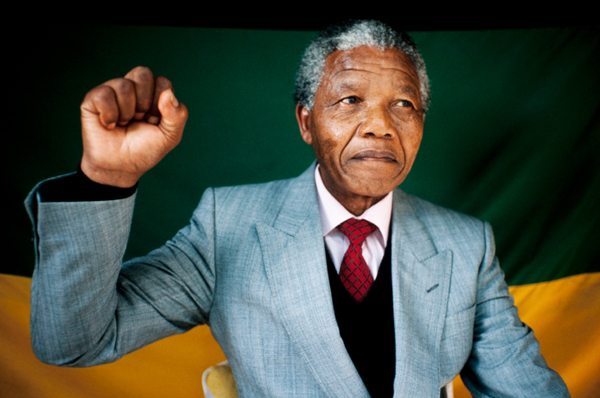3Qs: Mandela’s legacy in Africa and around the world

 Nelson Mandela, the anti-apartheid activist and former South African president, turned 95 on Thursday. His foundation marked the date by asking supporters to give 67 minutes of their time in reflection of the more than 67 years Mandela spent serving his community, his country, and the world through his imprisonment and as a public figure. We asked Kwamina Panford, an associate professor of African American Studies, to examine the legacy of the beloved leader, who has been hospitalized since June for a recurring lung infection.
Nelson Mandela, the anti-apartheid activist and former South African president, turned 95 on Thursday. His foundation marked the date by asking supporters to give 67 minutes of their time in reflection of the more than 67 years Mandela spent serving his community, his country, and the world through his imprisonment and as a public figure. We asked Kwamina Panford, an associate professor of African American Studies, to examine the legacy of the beloved leader, who has been hospitalized since June for a recurring lung infection.
Nelson Mandela’s influence in Africa goes far beyond the borders of South Africa. How is he regarded across the continent?
Before Mandela became the first black, democratically elected leader of South Africa, Africans were uniformly repressed by a white minority. His election, therefore, served as a key turning point for contemporary Africa.
I think Mandela is such a uniquely unifying figure because he was so gracious. He was detained for 27 years, but spoke only of peace. After living through one of the most repressive systems imaginable, Mandela and his peers didn’t resort to violence. He wasn’t bitter, he wasn’t angry—instead he stood for all South Africans, not just blacks. Ultimately, he showed Africans they can rise above bitterness and suffering, joining the ranks of great men like Ghandi and Martin Luther King, Jr., who enacted change with peace, humility, and grace.
Mandela is universally respected around the globe, serving as a leader and emissary on key world issues throughout his life. Why is he such a transformational global figure?
I think he is significant for a very simple reason: he demonstrated that people who advocate for peace are the solution to every problem. I think the Syrians could learn from him, the Somalis could learn from him, the Egyptians could learn from him—people all over the world would benefit from following that example. He showed, like few others ever had, that peace triumphs over violence, a valuable lesson no matter where you live. If one seeks peace, Mandela showed, it won’t be an easy road but it’s ultimately a course that will triumph over violence. And that’s something that resonated with people—people in power and average citizens alike—all over the world.
How do African-Americans view Mandela? How does his fight against apartheid fit into the American civil rights narrative?
Like Martin Luther King Jr., Mandela stands firmly for what is right. Apartheid had very strong roots in America’s own history of race; white South Africans even toured the southern United States to learn what they could do to replicate the kind of policies and practices that had long proliferated there after the Civil War. Mandela sought to undo that kind of racism, diminishing its presence not just in South Africa but also in the United States.
More broadly, I think he’s regarded by Americans as an example of the finest of humankind, showing the power of individuals who don’t take up arms in the face of horrible forms of oppression.





